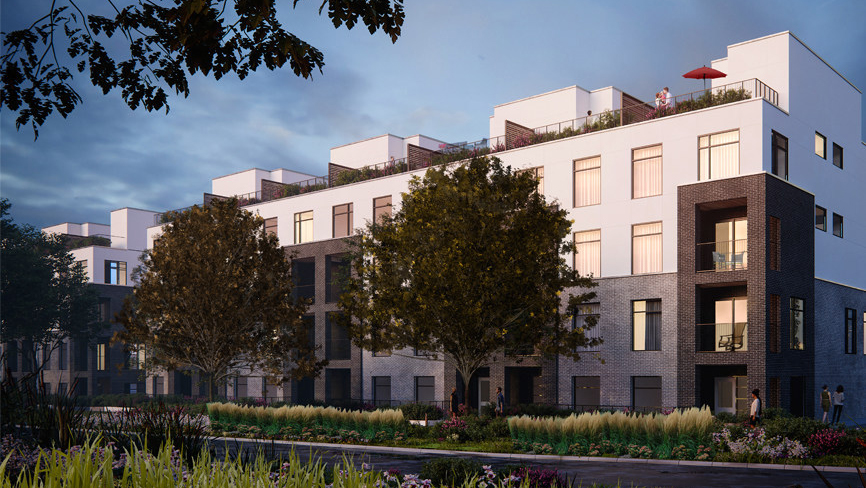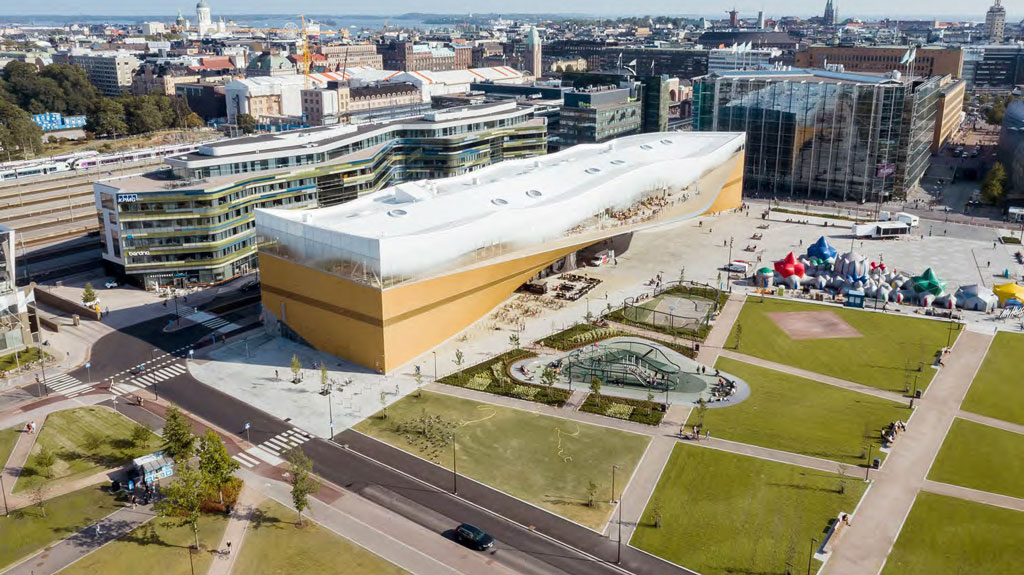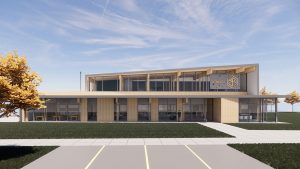The Town of Oakville and the Danish Consulate recently played host to a multi-disciplinary “hackathon” competition that left the winning team one step closer to a consulting gig with Minto Communities on its Oakvillage development in Oakville, Ont.
The event, billed as the Nordic-Canadian Circular Economy Hackathon, was held online Nov. 24 to 26. Presentations from Scandinavian firms active in the green circular economy aired Nov. 24 followed by workshopping of solutions by four teams. On the final day, after 70 minutes of presentations to the hackathon jury, Team D was declared the winner, earning the winners the right to meet with Minto and the Town of Oakville’s Planning and Climate Action departments with an inside track on obtaining consulting work.
Minto and the Town of Oakville are aiming to introduce significant sustainability elements into phase four of Oakvillage and possible retrofits to the first three phases.
“What we’re looking for is creative solutions and circular solutions for construction waste, energy use and waste management and as the development is used and lived in we’re looking for climate change resiliency,” explained Kyle Rainbow, development manager with Minto, in kicking off the event.

The competition was billed as an opportunity to illustrate how products and services that have helped Nordic firms become leaders in sustainability could be applied to Oakvillage. Nov. 24 presenter Eva Geitel, architect with Finnish firm ALA Architects, noted, “As we all know, the building and construction industry are responsible for about 39 per cent of all carbon emissions in the world so it is extremely relevant that we carefully consider what we are building, how we are building and how the buildings are used and experienced by the users.”
Hackathon moderator George Benson, the sector manager for the built environment at the Vancouver Economic Commission, said integrated circulator economy solutions help break down silos and develop solutions not thought of before.
In hackathons, he said, “people come together to understand problems from different angles and to collectively merge skills sets from different angles.”
Team D’s presentation was titled Oakville: Verdure and Vivacity. Team members were Melt Collective of British Columbia and Lumon, Ross DK, Scaledenmark and Tecwill, all of Scandinavia.
Spokesperson Liam Russell of Melt Collective, a recycling workshop based out of the University of British Columbia, explained that Team D would achieve circularity by integrating across domains. The plan included advanced waste management practices, community-scale biogas production through the use of an anaerobic digester, geothermal and solar heating, sustainable onsite concrete production, modular production of enclosed balconies and garden growth of foods on balconies.

The digester could produce additional heat for the community, the geothermal and solar sources could lead to carbon neutrality and could be easily used in retrofits, the enclosed balconies provide extra protection for the building envelope and the food production increases the livability of highrises and improves mental health, Russell argued.
“This is a clean cycle to build a better and more green way of living in Oakvillage,” Russell said.
“The growth of the community allows us to enjoy our lives, so integrating all these things together is super important for us. Connecting all these loops will maximize the synergistic effects more than any individual efficiency.”
Benson noted in wrapping up the session that there had been a huge amount of technologies and ground covered.
“The participants clearly put a ton of work into these presentations,” he said. “This is the nature of the hackathon. It is a pressure cooker on both the front end and the back end, you work really hard behind the scenes.
“We know that many of you are entrepreneurs who are trying to get your products out there and showcase what’s interesting and exciting.”
The jury agreed Team D was able to successfully integrate a wide variety of technologies and perspectives into their work, Benson said. The presentation was convincing and crisp.
“They were able to link that technical proficiency and performance with the livability for the residents of these future homes and that’s really a core part of what we wanted to see.”
Other Nordic firms participating included City Nomadi, Danfoss, Ensavetec, Kontio, Linka Boilers, Molok and Nextfood.
Other Canadian firms and participants included Calmura Natural Walls, the City of Vancouver, Hygge Energy, Look4Loops, Rathco ENG and Sheridan College.
Follow the author on Twitter @DonWall_DCN.











Recent Comments
comments for this post are closed